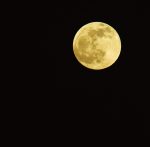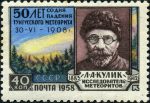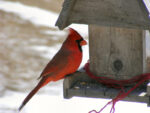Our July full-moon report on the many “citizen-science” projects around the world that you and your students can participate in from the comfort of your little home academy. Pick one and get started today!
🌕 Lunar Society Bulletins: Citizen-Science Projects for Homeschoolers
“Men work together,” I told him from the heart,
“Whether they work together or apart.”
News about the many independent citizen-science projects in a wide variety of fields that are available to homeschool students. Browse through our whole list of recommended projects to find one that would be a good fit for your family and get started today! And be sure to subscribe to our free homeschool newsletter to get these and other great homeschool teaching opportunities delivered right to your mailbox every week. 📫
❡ Calling all homeschool photographers: One of the special projects we recommend is the Wikimedia Commons Photo Challenge, a monthly opportunity for your homeschool students to improve their photographic skills and submit high-quality images to the public Wikimedia Commons database. We put up a separate post with the current Photo Challenge themes at the beginning of every month. 📸
📸 PHOTO CHALLENGE for July: “Vending Machines” and “Waterside Structures”
Calling all homeschool photographers! The Wikimedia Commons Photo Challenge is a great way for enthusiastic homeschool photography students to develop their skills and gain some recognition for their work. This month’s themes are “Vending Machines” and “Waterside Structures.” Take a look!
🌠 JOIN A HOMESCHOOL SCIENCE PROJECT for International Asteroid Day!
You and your students can help astronomers study the shapes and orbits of real asteroids in space, right from the comfort of your little home academy. How cool is that?
🌳 🗺️ LOCAL & FAMILY HISTORY PROJECTS for Homeschoolers
Local history and geography, and family history (genealogy), are ideal educational subjects to explore in every homeschool, especially during the summer months.
🌕 HOMESCHOOL CITIZEN-SCIENCE PROJECTS for June
Our June full-moon report on the many “citizen-science” projects around the world that you and your students can participate in from the comfort of your little home academy. Pick one and get started today!
📜 📚 SUMMER PROJECTS from the Library of Congress and National Archives
Explore some of the educational projects that are available to your homeschool students this summer (or at any time of year) from the U.S. National Archives and the Library of Congress. They’re just the thing to help your students develop independent study skills for college or career.
📸 PHOTO CHALLENGE for June: “Steam” and “One is Different”
Calling all homeschool photographers! The Wikimedia Commons Photo Challenge is a great way for enthusiastic homeschool photography students to develop their skills and gain some recognition for their work. This month’s themes are “Steam” and “One is Different.” Take a look!
🌕 HOMESCHOOL CITIZEN-SCIENCE PROJECTS for May
Our May full-moon report on the many “citizen-science” projects around the world that you and your students can participate in from the comfort of your little home academy. Pick one and get started today!
📸 PHOTO CHALLENGE for May: “Flowers” and “Flags”
Calling all homeschool photographers! The Wikimedia Commons Photo Challenge is a great way for enthusiastic homeschool photography students to develop their skills and gain some recognition for their work. This month’s themes are “Flowers” and “Flags.” Take a look!
🌕 HOMESCHOOL CITIZEN-SCIENCE PROJECTS for April
Our April full-moon report on the many “citizen-science” projects around the world that you and your students can participate in from the comfort of your little home academy. Pick one and get started today!
📸 PHOTO CHALLENGE for April: “Meadows” and “Camelids”
Calling all homeschool photographers! The Wikimedia Commons Photo Challenge is a great way for enthusiastic homeschool photography students to develop their skills and gain some recognition for their work. This month’s themes are “Meadows” and “Camels, Alpacas, and Llamas.” Take a look!
🐦 HOMESCHOOL NATURE NOTES: The Great Backyard Bird Count in Review
Last month’s Great Backyard Bird Count has entered the history books. More than 800,000 people from around the world participated! Were you and your homeschoolers among them?
📡 JOIN A CITIZEN-SCIENCE PROJECT for Einstein’s Birthday
You and your young science students can join the search for undiscovered pulsars in deep space, right from the comfort of your own homeschool living room. (Really!) How cool is that?
🌕 HOMESCHOOL CITIZEN-SCIENCE PROJECTS for March
Our March full-moon report on the many “citizen-science” projects around the world that you and your students can participate in from the comfort of your little home academy. Pick one and get started today!
📸 PHOTO CHALLENGE for March: “Hiking” and “Newspapers”
Calling all homeschool photographers! The Wikimedia Commons Photo Challenge is a great way for enthusiastic homeschool photography students to develop their skills and gain some recognition for their work. This month’s themes are “Hiking” and “Newspapers.” Take a look!
🌕 HOMESCHOOL CITIZEN-SCIENCE PROJECTS for February
Our February full-moon report on the many “citizen-science” projects around the world that you and your students can participate in from the comfort of your little home academy. Pick one and get started today!
📸 PHOTO CHALLENGE for February: “Absence” and “Healthy Living”
Calling all homeschool photographers! The Wikimedia Commons Photo Challenge is a great way for enthusiastic homeschool photography students to develop their skills and gain some recognition for their work. This month’s themes are “Absence” and “Healthy Living.” Take a look!
🐦 NATURE NOTES: Join the Great Backyard Bird Count!
Get your homeschool naturalists involved in the Great Backyard Bird Count, an annual international survey that will let you and your students make a real contribution to science. It’s one of the best educational nature activities your can do all year.
🌕 HOMESCHOOL CITIZEN-SCIENCE PROJECTS for January
Our January full-moon report on the many “citizen-science” projects around the world that you and your students can participate in from the comfort of your little home academy. Pick one and get started today!
📸 PHOTO CHALLENGE for January: “Leatherwork” and “Ovals”
Calling all homeschool photographers! The Wikimedia Commons Photo Challenge is a great way for enthusiastic homeschool photography students to develop their skills and gain some recognition for their work. This month’s themes are “Leatherwork” and “Ovals.” Take a look!
🌕 HOMESCHOOL CITIZEN-SCIENCE PROJECTS for December
Our December full-moon report on the many “citizen-science” projects around the world that you and your students can participate in from the comfort of your little home academy. Pick one and get started today!
📸 PHOTO CHALLENGE for December: “Pastels” and “Footprints”
Calling all homeschool photographers! The Wikimedia Commons Photo Challenge is a great way for enthusiastic homeschool photography students to develop their skills and gain some recognition for their work. This month’s themes are “Pastels” and “Footprints.” Take a look!
🌕 HOMESCHOOL CITIZEN-SCIENCE PROJECTS for November
Our November full-moon report on the many “citizen-science” projects around the world that you and your students can participate in from the comfort of your little home academy. Pick one and get started today!
📚 🇺🇸 HOMESCHOOL HISTORY: The Veterans History Project
You and your homeschool students can contribute to an important historical documentary project by interviewing American veterans in your family or community for the Library of Congress.
📸 PHOTO CHALLENGE for November: “Sidewalk” and “Panning”
Calling all homeschool photographers! The Wikimedia Commons Photo Challenge is a great way for enthusiastic homeschool photography students to develop their skills and gain some recognition for their work. This month’s themes are “Sidewalk” and “Panning.” Take a look!
🐦 HOMESCHOOL SCIENCE: Feed the Birds! (And Join Project FeederWatch!)
Setting up a bird feeder is one of the simplest and most educational homeschool activities you can do at any time of year. And by tracking the birds you see at your backyard feeder your students can make a real contribution to science through Project FeederWatch.
🌕 HOMESCHOOL CITIZEN-SCIENCE PROJECTS for October
Our October full-moon report on the many “citizen-science” projects around the world that you and your students can participate in from the comfort of your little home academy. Pick one and get started today!

![[Homeschool Photography Icon]](https://riverhouses.org/wp-content/uploads/2022/10/camera-flash-emoji-150x150.png)

![[Tree]](https://riverhouses.org/wp-content/uploads/2025/05/tree-emoji-150x150.png)

![[Great Backyard Bird Count]](https://riverhouses.org/wp-content/uploads/2025/01/gbbc-poster-2025-115x150.jpg)


